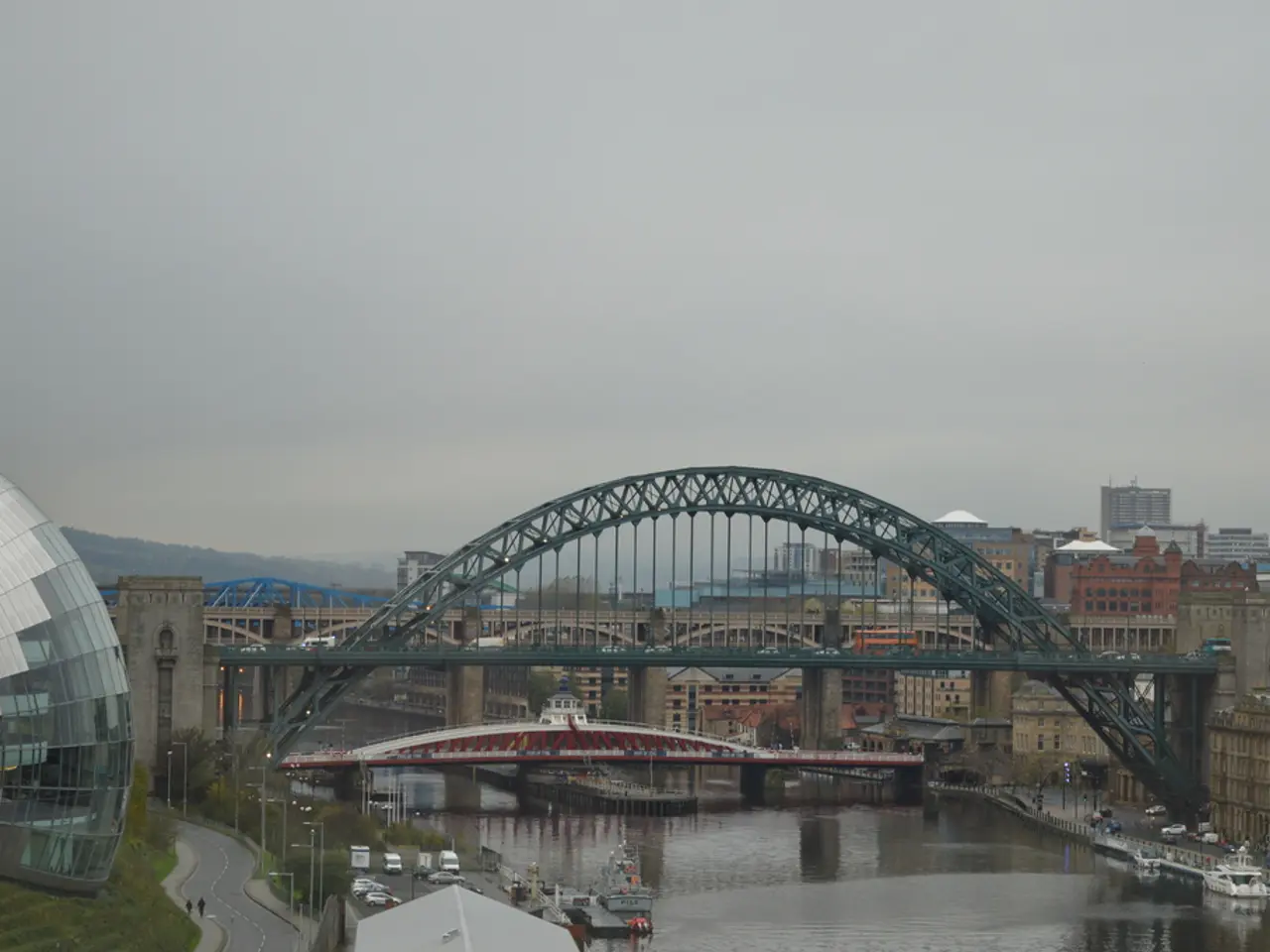Exploring the Hypothetical: French Architecture Transitioning into Industrial Development
In the race to modernize the construction sector, Germany is setting the pace for the European Union. With industrial prefabrication accounting for 23% of new housing compared to less than 10% in France, the German approach is proving to be a game-changer.
Robots and CNC tools in German factories ensure consistent quality and millimetric precision in construction. This shift towards factory-based construction operations helps offset the scarcity of skilled workers, a challenge faced by the sector.
The advantages of industrialization extend beyond labour shortages. Computer-aided manufacturing turns digital models into precise machine instructions, drastically cutting waste and facilitating the integration of low-carbon materials. Modular prefabrication speeds up delivery, reducing timelines by 30 to 50%.
The success of this strategy is evident in projects like the P18 modular wooden building in Stuttgart, assembled in record time, compliant with environmental standards, and offering impeccable design quality.
But it's not just about speed and efficiency. Industrialization in construction does not necessarily mean sacrificing architectural quality. In fact, Germany's strategy in the construction sector combines digitalization, industrialization, and low-carbon materials to redefine building standards.
France, on the other hand, faces growing pressure on housing and is struggling to meet its environmental goals without industrializing its construction sector. The country's construction model remains artisanal, contrasting with Germany's industrialization.
France's strong reliance on nuclear power offers advantages in low-carbon energy, but its slower industrial and digital adoption, combined with limited natural resources, may hinder its ability to effectively tackle labor shortages, housing demands, and the climate emergency through modern construction practices.
The consequences for France include continued challenges in scaling up construction to meet urgent housing needs and capitalizing on digital and industrial innovations to mitigate labor shortages. Without accelerating industrial modernization and adopting advanced low-carbon building materials and digital construction technologies, France risks falling behind Germany in addressing its climate emergency and housing challenges.
The success of France's construction sector depends on its willingness to embrace industrialization and learn from Germany's model. The current climate emergency underscores the importance of reducing the carbon footprint, and industrialization in construction is a critical step towards that goal.
In the end, the race to modernize construction is not just about speed and efficiency, but about meeting the urgent needs of a growing population while minimizing our impact on the environment. Germany's leadership in this area offers valuable lessons for other countries, including France, as they strive to find sustainable solutions to their housing and climate challenges.
- Robotics and automation in German factories are key components of the nation's modernized construction sector, ensuring consistent quality and millimetric precision.
- The adoption of computer-aided manufacturing and low-carbon materials, including modular prefabrication, has enabled Germany to drastically cut waste and speed up delivery in construction, reducing timelines by 30 to 50%.
- The finance industry plays a critical role in supporting Germany's industrialized construction sector, as it helps scale up construction to meet urgent housing needs while capitalizing on digital and industrial innovations.
- As France struggles to meet its environmental goals and urgent housing needs without industrializing its construction sector, it risks falling behind Germany in addressing its climate emergency and housing challenges, making it crucial for the country to embrace industrialization and learn from Germany's model.




